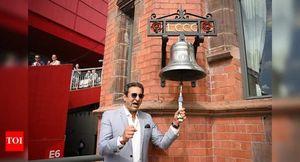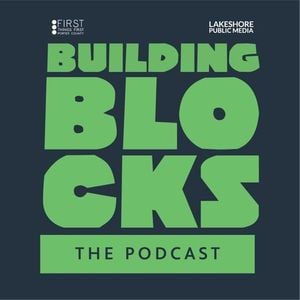On Saturday, August 16, 2025, former Brazilian President Jair Bolsonaro briefly stepped out from the confines of house arrest in Brasília, drawing a small but fervent crowd of supporters and the watchful gaze of the nation. The 70-year-old right-wing leader, who governed Latin America’s largest country from 2019 to 2022, was granted a temporary reprieve by a judge to seek urgent medical care—a rare moment of visibility as he awaits a potentially career-ending Supreme Court verdict on charges of plotting a coup.
Bolsonaro’s release from house arrest was not a matter of political maneuvering, but of health necessity. According to AFP and further confirmed by DF Star hospital physicians, the former president was admitted for a battery of exams aimed at diagnosing persistent gastrointestinal issues. His legal team had petitioned the court, citing chronic “reflux and hiccup symptoms” that have plagued him since a near-fatal stabbing during his 2018 presidential campaign. The medical evaluation included an intestinal endoscopy and tests for respiratory ailments, as Bolsonaro had recently reported fever and a cough.
Outside the hospital, the scene was both somber and electric. About 20 loyalists, waving Brazilian, Israeli, and U.S. flags, gathered in the morning chill. Their chants and banners echoed a familiar refrain: hopes for Bolsonaro’s return to power in 2026. “We believe that Jair Bolsonaro will be president of Brazil in 2026,” supporter Marcia Maria told Agence France-Presse. “The people demand it.” Bolsonaro, ever the enigmatic figure, briefly acknowledged his fans but declined to address the assembled journalists before heading inside for his exams.
The former president’s health woes are not new, but they have taken on new urgency in the shadow of legal jeopardy. Dr. Leandro Echenique, speaking to the press outside the facility, revealed that tests showed Bolsonaro had suffered two recent bouts of pneumonia. “He is making a good recovery,” Echenique assured reporters, though he noted that the respiratory infections were only the latest in a series of lingering complications. Surgeon Claudio Birolini, who has overseen Bolsonaro’s care since 2019, confirmed that the ex-president continues to struggle with inflammation of the esophagus and persistent reflux. “The fact that he is home now hinders his physical activity a little, so we are suggesting that he intensify his weight training exercises ... because he cannot walk, he cannot do anything like that,” Birolini explained, highlighting the physical limitations imposed by house arrest.
Bolsonaro’s medical team at DF Star hospital further detailed his condition to local media. In addition to the residual effects of pneumonia, doctors found persistent esophagitis and gastritis—conditions that, while not immediately life-threatening, require ongoing medication and careful monitoring. The hospital cleared Bolsonaro for discharge later the same day, with instructions to continue his treatment at home. His brief public appearance, however, did little to quell the political storm brewing around him.
At the heart of Bolsonaro’s legal troubles is a looming Supreme Court decision set for September 2, 2025. The former president stands accused of attempting to cling to power after his 2022 defeat by Luiz Inácio Lula da Silva, Brazil’s current leftist leader. The charges, if proven, could land Bolsonaro behind bars for up to 40 years—a staggering prospect that has polarized the nation and reverberated far beyond Brazil’s borders.
Bolsonaro, for his part, has steadfastly denied any wrongdoing. He has characterized the proceedings as a politically motivated attack, a narrative that has found resonance among his supporters both at home and abroad. The case has also drawn the attention of former U.S. President Donald Trump, who has publicly condemned the trial as a “witch hunt.” In a move that stunned international observers, Trump recently signed an executive order imposing 50 percent tariffs on a range of Brazilian imports, citing what he called the “politically motivated persecution” of Bolsonaro.
The intersection of health and politics has long been a feature of Bolsonaro’s public life. The stabbing he suffered in 2018 left lasting physical scars and, according to his doctors, contributed to the chronic digestive issues that continue to dog him. His time under house arrest—imposed earlier this month for violating a judicial ban on using social networks to rally public support—has only compounded his health challenges. With his mobility restricted, Bolsonaro’s doctors have urged him to adapt his exercise routine, emphasizing weight training over walking or other aerobic activity.
For Bolsonaro’s supporters, the former president’s health struggles are a rallying cry, a symbol of resilience in the face of adversity. For his detractors, they are a footnote to a much larger story about accountability and the rule of law. The upcoming Supreme Court decision is expected to lay bare the deep divisions that have come to define Brazilian politics in recent years. Some see the trial as a necessary step toward healing a democracy wounded by unrest and misinformation; others view it as an overreach, a politically charged effort to sideline a popular—if polarizing—figure.
The legal proceedings themselves have been closely watched by international observers, not least because of their potential to reshape Brazil’s political landscape. If convicted, Bolsonaro would not only face a lengthy prison sentence but would also be barred from seeking public office—a development that could upend the 2026 presidential race. Yet, as the events of Saturday made clear, the former president’s base remains steadfast, undeterred by legal setbacks or health scares. Their faith in Bolsonaro’s eventual return to power is undiminished, and their presence outside the hospital was a vivid reminder that, in Brazilian politics, nothing is ever truly settled.
As Bolsonaro returned home on Saturday, his future hung in the balance—caught between the demands of his body and the judgment of the courts. The coming weeks promise to be decisive, not only for the man himself but for a nation grappling with questions of justice, democracy, and the limits of political power. For now, all eyes remain on Brasília, where the fate of Jair Bolsonaro—and perhaps the direction of Brazil itself—will soon be decided.




